
Recordings from Stavanger, Norway in 1992 by a trio of legends--Derek Bailey on amplified guitar, John Stevens on percussion and mini trumpet, and Frode Gjerstad on alto saxophone--a trio that only performed three gigs on three consecutive days, this album captured on the last of those performances, a testament to their great compatibility and intent.
Out of Stock
Quantity in Basket: None
Log In to use our Wish List
Shipping Weight: 5.00 units
Sample The Album:
Frode Gjerstad-alto saxophone
John Stevens-percussion, mini trumpet
Derek Bailey-amplified guitar
Click an artist name above to see in-stock items for that artist.
UPC: 5030243406524
Label: Emanem
Catalog ID: 4065
Squidco Product Code: 27822
Format: CD
Condition: New
Released: 2001
Country: UK
Packaging: Jewel Case
Recorded at Folken, in Stavanger, Norway, in October, 1992, by Frode Gjerstad.
"A trio that performed only three gigs on three consecutive days - the music on this CD coming from the third one. Stevens had often worked with the other two in duos and larger groups, but this tour was the only time that guitarist Bailey and saxophonist Gjerstad worked together, and work together they do - very well in fact. All the pieces are trio improvisations, but the three duos do appear from time to time. Stevens played a (borrowed) standard drum kit, but played it with all the sensibility of his small SME one."-Emanem
Artist Biographies
• Show Bio for Frode Gjerstad "Frode Gjerstad was born in Stavanger, Norway, 24-03-1948. He started trying to play improvised music as a trumpeter in 1968. When he moved to Lund in Sweden (1971 to 1975) he got a chance to meet, talk and play with musicians interested in this music. He had at that time started playing tenor saxophone (1969). After he came back to Stavanger in 1975 he started collaborating with keyboardist Eivin One Pedersen. Together, they explored many different aspects of improvised music, as a duo or with others, but it was not until 1981, when they first played with John Stevens, that he had a real chance to feel what a dedicated musicians can do to the music-making. At the early stage of his career, he choose mainly to play with international musicians because there was no tradition in Norway for the free music. However, after the club Blå opened in Oslo in 1996, a good number of younger musicians are now picking up on the music. His relationship with British drummer, John Stevens which started in -81 and lasted up until his death in -94, was of great importance both musically as well as on a personal level. Through Stevens, he was introduced to some of the finest British improvisers and got to know their way of playing. Together, they led the trio "Detail" starting with Johnny Dyani on bass. And after Johnny died in -86, with Kent Carter. He has also been active, running a larger group of mostly Norwegian musicians, the Circulasione Totale Orchestra. He started the group using electric instruments and modern rock-oriented rhythms. He has used the band to present his own compositions as well as a workshop and a place for young people to get to know free music. The band presented a commissioned work at the Molde Festival in -89 with a 13 man band combining free improvisations, compositions as well as rapping and scratching.(Three horns, three bassists, three drummers, accordeon, guitar a rapper and a DJ). The Circulasione Totale Orchestra is a powerful ever-changing band. But it´s not easy to keep such a big group together. In 1998 he decided to keep the core of the band which at that time was Paal Nilssen-Love on drums and Øyvind Storesund on bass and try to develop that sound. It became Frode Gjerstad Trio. So far the trio has toured Norway, Sweden, Denmark, Polen, Italy, Austria, Portugal, England, Canada and the United States. He has received several grants from various foundations and has been very active in the Norwegian Jazzmusicians Federation as well as in the committee for the Norwegian Contemporary Music Federation. Voted Jazz Musician of the Year in Norway, 1997. Part of the price was a concert where he could freely choose which musicians to use. This was the first meeting with Hamid Drake and William Parker. The concert became a tour of Scandinavia in -97 and the US in 2000. US Pianist Borah Bergman has also been important to Frode. They first met in -94 and have played as a duo and also as trio with Evan Parker and later Peter Brøtzmann. Borah has been a great inspiration and a challenge over the years! English bassist Nicholas Stephens first played with Frode in 1984. He played electric bass at the time, but it was not until after John Stevens died in 1994 that they started working together as "Calling Signals". First with a tour of England in 1995 with Paul Rutherford and Terje Isungset. And in 1996 with Louis Moholo and Danish guitarist, Hasse Poulsen. The latest version of the group has been with accordionist Eivin One Pederesen and Paal Nilssen-Love or Tony Marsh on drums. Frode also met and worked with US percussionist Kevin Norton in 2004 and they have found a common ground. They have a trio with Nicholas Stephens: Instinctual Eye. Electronic music started to make an impact when he met Lasse Marhaug. They have played some concerts together and made some recordings. Lasses sounds have opened up a whole new territory of possibilities and came at a time when Frode started playing clarinets. A very fruitful combination! Another side of the electronic thing was the group Ultralyd which was Frodes idea: to bring in a loud powerful electric bass with drums, guitar and reeds. After about a year, he left the band because the sound level was unbearable for the old man.! And he left it to the youngsters to decide how loud the band should be. Still, he has continued playing with Morten, Anders and Kjetil in other projects." ^ Hide Bio for Frode Gjerstad • Show Bio for John Stevens "John William Stevens (10 June 1940 in Brentford, Middlesex - 13 September 1994 in Ealing, west London) was an English drummer. He was one of the most significant figures in early free improvisation, and a founding member of the Spontaneous Music Ensemble (SME). Stevens was born in Brentford, the son of a tap dancer. He used to listen to jazz as a child, but was initially more interested in drawing and painting (media through which he also expressed himself throughout his life). He studied at the Ealing Art College and then started work in a design studio, but left at 19 to join the Royal Air Force. He studied the drums at the Royal Air Force School of Music in Uxbridge, and while there met Trevor Watts and Paul Rutherford, two musicians who became close collaborators. In the mid-1960s Stevens began to play in London jazz groups alongside musicians like Tubby Hayes and Ronnie Scott, and in 1965 he fronted a septet. Influenced by the free jazz he was hearing coming out of the United States by players like Ornette Coleman and Albert Ayler, his style began to move away from fairly traditional be-bop to something more experimental. In 1966 SME was formed with Watts and Rutherford and the group moved into the Little Theatre Club at Garrick Yard, St. Martin's Lane, London to develop their new music. In 1967 their first album, Challenge, was released. Stevens then became interested in the music of Anton Webern, and the SME began to play generally very quiet music. Stevens also became interested in non-Western musics. The SME went on to make a large number of records with an ever changing line-up and an ever changing number of members, but Stevens was always there, at the centre of the group's activity. He also played in a number of other groups, drumming in Watts' group Amalgam and later forming bands like Freebop and Fast Colour, for example, but the SME remained at the centre of his activities. In the latter part of 1967 Evan Parker joined the SME and worked closely with Stevens in the group, eventually becoming one of the longest standing members. He later summed up Stevens' approach to improvising in two basic maxims: if you can't hear another musician, then you're too loud; and there is no point in group improvisation if what you are playing doesn't relate to what other members of the group are playing. Stevens also devised a number of basic starting points for improvisation. These were not "compositions" as such, but rather a means of getting improvisational activity started, which could then go off in any direction. One of these was the so-called "Click Piece" which essentially asked for each player to repeatedly play a note as short as possible. Stevens played alongside a large number of prominent free improvisors in the SME, including Derek Bailey, Peter Kowald, Julie Tippetts and Robert Calvert, but from the mid-1970s, the make-up of the SME began to settle down to a regular group of Stevens, Nigel Coombes playing violin, and Roger Smith playing guitar. During the mid-1970s Stevens played regularly with guitarist and songwriter John Martyn as part of a trio that included bassist Danny Thompson. This line up can be heard on Martyn's 1976 recording Live at Leeds. From 1983 Stevens was involved with Community Music (CM), an organisation through which he took his form of music making to youth clubs, mental health institutions and other unusual places. Notes taken during these sessions were later turned into a book for the Open University called Search and Reflect (1985). In the late 70s and early 80s John was a regular performer at the Bracknell Jazz Festival. Aside from SME, Stevens also ran or helped to organise groups that were more jazz or jazz-rock based, such as Splinters, the John Stevens Dance Orchestra, Away, Freebop, Folkus, Fast Colour, PRS, and the John Stevens Quintet and Quartet. He also contributed significantly to Trevor Watts' group Amalgam and Frode Gjerstad's Detail, as well as collaborating with Bobby Bradford on several occasions. The SME continued to play, the last time being in 1994 with a group including John Butcher. Stevens died later that year." ^ Hide Bio for John Stevens • Show Bio for Derek Bailey "Derek Bailey (29 January 1930 - 25 December 2005) was an English avant-garde guitarist and leading figure in the free improvisation movement. Bailey was born in Sheffield, England. A third-generation musician, he began playing the guitar at the age of ten, initially studying music with his teacher and Sheffield City organist C. H. C. Biltcliffe, an experience that he did not enjoy, and guitar with his uncle George Wing and John Duarte. As an adult he worked as a guitarist and session musician in clubs, radio, dance hall bands, and so on, playing with many performers including Morecambe and Wise, Gracie Fields, Bob Monkhouse and Kathy Kirby, and on television programs such as Opportunity Knocks. Bailey's earliest foray into 'what could be called free improvised music' was in 1953 with two other guitarists in their shared flat in Glasgow. He was also part of a Sheffield-based trio founded in 1963 with Tony Oxley and Gavin Bryars called "Joseph Holbrooke" (named after the composer, whose work they never actually played). Although originally performing relatively "conventional" modal, harmonic jazz this group became increasingly free in direction. Bailey moved to London in 1966, frequenting the Little Theatre Club run by drummer John Stevens. Here he met many other like-minded musicians, such as saxophonist Evan Parker, trumpet player Kenny Wheeler and double bass player Dave Holland. These players often collaborated under the umbrella name of the Spontaneous Music Ensemble, recording the seminal album Karyobin for Island Records in 1968. In this year Bailey also formed the Music Improvisation Company with Parker, percussionist Jamie Muir and Hugh Davies on homemade electronics, a project that continued until 1971. He was also a member of the Jazz Composer's Orchestra and Iskra 1903, a trio with double-bass player Barry Guy and tromboneist Paul Rutherford that was named after a newspaper published by the Russian revolutionary Vladimir Lenin. In 1970, Bailey founded the record label Incus with Tony Oxley, Evan Parker and Michael Walters. It proved influential as the first musician-owned independent label in the UK. Oxley and Walters left early on; Parker and Bailey continued as co-directors until the mid-1980s, when friction between the men led to Parker's departure. Bailey continued the label with his partner Karen Brookman until his death in 2005[citation needed]. Along with a number of other musicians, Bailey was a co-founder of Musics magazine in 1975. This was described as "an impromental experivisation arts magazine" and circulated through a network of like-minded record shops, arguably becoming one of the most significant jazz publications of the second half of the 1970s, and instrumental in the foundation of the London Musicians Collective. 1976 saw Bailey instigate Company, an ever-changing collection of like-minded improvisors, which at various times has included Anthony Braxton, Tristan Honsinger, Misha Mengelberg, Lol Coxhill, Fred Frith, Steve Beresford, Steve Lacy, Johnny Dyani, Leo Smith, Han Bennink, Eugene Chadbourne, Henry Kaiser, John Zorn, Buckethead and many others. Company Week, an annual week-long free improvisational festival organised by Bailey, ran until 1994. In 1980, he wrote the book Improvisation: Its Nature and Practice. This was adapted by UK's Channel 4 into a four-part TV series in the early '90s, edited and narrated by Bailey. Bailey died in London on Christmas Day, 2005. He had been suffering from motor neurone disease." ^ Hide Bio for Derek Bailey
11/29/2024
Have a better biography or biography source? Please Contact Us so that we can update this biography.
11/29/2024
Have a better biography or biography source? Please Contact Us so that we can update this biography.
11/29/2024
Have a better biography or biography source? Please Contact Us so that we can update this biography.
Track Listing:
1. Hello 3:05
2. Three Two Three Two One 21:38
3. Three By Three 24:25
4. Two Three Two Three 12:30
5. Penultimatum 5:38
6. Goodbye 6:04
Improvised Music
Jazz
Free Improvisation
European Improvisation and Experimental Forms
London & UK Improv & Related Scenes
Trio Recordings
Bailey, Derek
Staff Picks & Recommended Items
Search for other titles on the label:
Emanem.


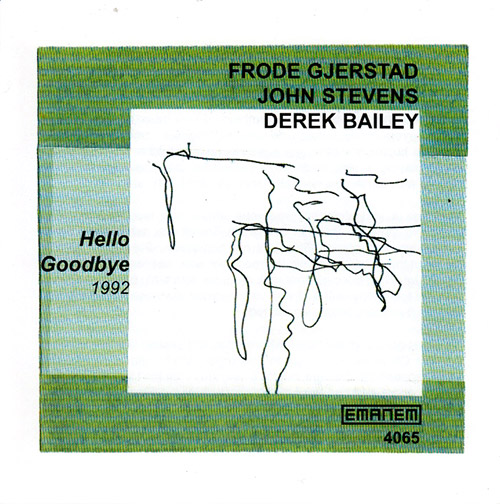
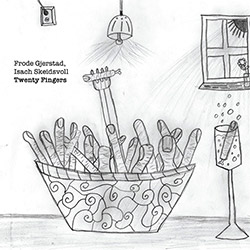


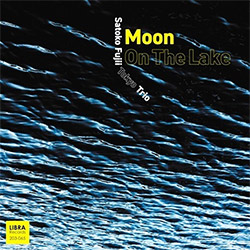
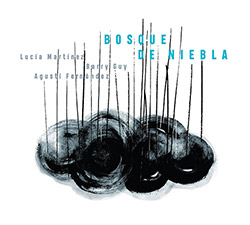
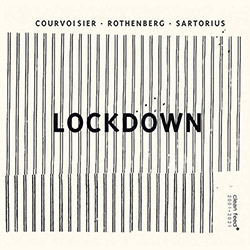

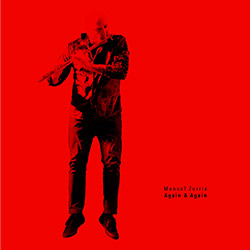
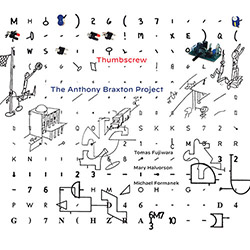

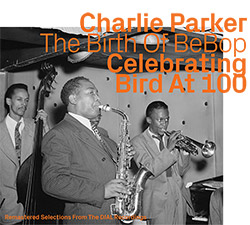



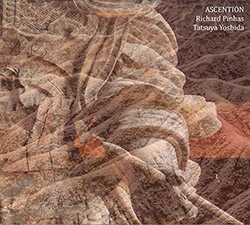

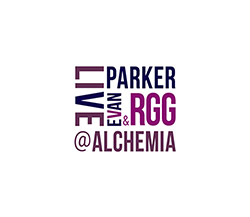
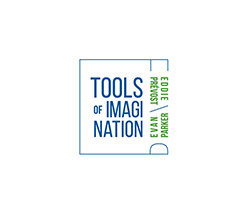
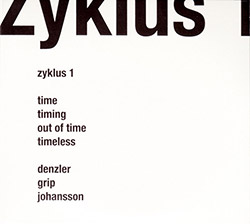


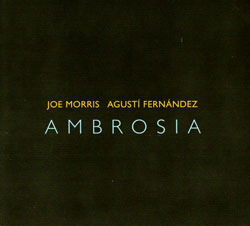
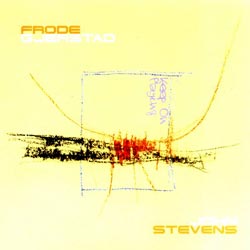




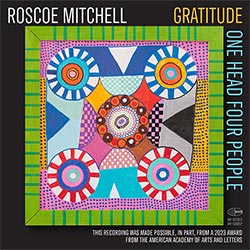
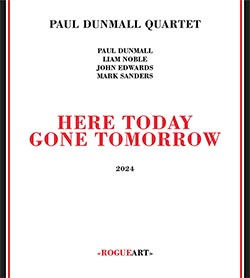
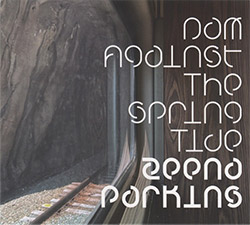
![Weston, Matt: Communism Has Appeared On The Scene [VINYL 2 LPs]](https://www.teuthida.com/productImages/misc4/35546.jpg)
![Coleman, Steve & Five Elements: PolyTropos / Of Many Turns [2 CDs]](https://www.teuthida.com/productImages/misc4/35476.jpg)
![Sorey, Tyshawn (w/ Diehl / Ragahavan): The Susceptible Now [DOUBLE VINYL]](https://www.teuthida.com/productImages/misc4/35477.jpg)


![John Coltrane Quartet (Coltrane / Tyner / Garrison / Jones): Impressions From Graz 1962, Revisited [2 CDs]](https://www.teuthida.com/productImages/misc4/35495.jpg)

![Guy, Barry / Ken Vandermark: Occasional Poems [2 CDs]](https://www.teuthida.com/productImages/misc4/34849.jpg)
![Novoa / Carter / Mela Trio: Vol.1 [VINYL]](https://www.teuthida.com/productImages/misc4/35236.jpg)


![Elephant9 : Mythical River [VINYL]](https://www.teuthida.com/productImages/misc4/34624.jpg)
![Evans, Peter (Evans / Eldh / Black): Extra [VINYL]](https://www.teuthida.com/productImages/misc4/35279.jpg)

![McPhee, Joe: Straight Up, Without Wings [BOOK]](https://www.teuthida.com/productImages/misc4/35454.jpg)
![Jeck, Philip: rpm [2 CDs]](https://www.teuthida.com/productImages/misc4/35455.jpg)









![Barker / Parker / Irabagon: Bakunawa [VINYL]](https://www.teuthida.com/productImages/misc4/35533.jpg)




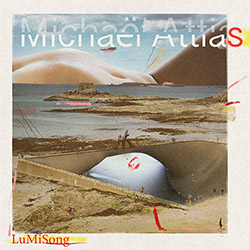
![Blaser, Samuel / Marc Ducret / Peter Bruun: Dark Was The Night, Cold Was The Ground [VINYL 10-inch]](https://www.teuthida.com/productImages/misc4/35492.jpg)






![Warren, Kenny (Warren / Hoffman / Ellman): Sweet World [VINYL]](https://www.teuthida.com/productImages/misc4/35451.jpg)




![Blake, Ran / Dave Knife Fabris: Live Amsterdam 2006, First Visit [CD + POSTCARDS]](https://www.teuthida.com/productImages/misc4/35275.jpg)




![DNS: Taking Big Bites Of The Khandas Three Cafes Deep [2 CDs]](https://www.teuthida.com/productImages/misc4/35334.jpg)




![Cleaver, Gerald: The Process [VINYL]](https://www.teuthida.com/productImages/misc4/34966.jpg)




![Alva Noto: HYbr:ID II [VINYL 2 LPs]](https://www.teuthida.com/productImages/misc4/35201.jpg)

![Baron, Derek / Luke Martin: Distinct and Concealed [CASSETTE + DOWNLOAD]](https://www.teuthida.com/productImages/misc4/35079.jpg)

![Lyle, Erica Dawn : Colonial Motels [CASSETTE + DOWNLOAD]](https://www.teuthida.com/productImages/misc4/35080.jpg)









![Sanna, Claudio: Compositori Sardi Contemporanei II [2 CDs]](https://www.teuthida.com/productImages/misc4/35317.jpg)







![Zurria, Manuel: Fame di Vento [3 CDs]](https://www.teuthida.com/productImages/misc4/35167.jpg)

![Granberg, Magnus / Nattens Inbrott / Skogen: Holde Traume, Kehret Wieder! [2 CDs]](https://www.teuthida.com/productImages/misc4/35038.jpg)
![Frey, Jurg: Outermost Melodie [2 CDs]](https://www.teuthida.com/productImages/misc4/35039.jpg)

![Pavone, Jessica: Reverse Bloom [VINYL]](https://www.teuthida.com/productImages/misc4/34895.jpg)




![Modney (Modney / Wooley / Gentile / Roberts / Pluta / Symthe / ...): Ascending Primes [2 CDs]](https://www.teuthida.com/productImages/misc4/34852.jpg)







![Elephant9 with Terje Rypdal: Catching Fire [VINYL 2 LPs]](https://www.teuthida.com/productImages/misc4/35355.jpg)
![Deerlady (Obomsawin, Mali / Magdalena Abrego): Greatest Hits [VINYL]](https://www.teuthida.com/productImages/misc4/34876.jpg)




![Haino, Keiji: Black Blues [2 CDs]](https://www.teuthida.com/productImages/misc4/35109.jpg)



![Surplus 1980: Illusion of Consistency [CD]](https://www.teuthida.com/productImages/misc4/35069.jpg)
![Staiano, Moe: Away Towards the Light [VINYL + DOWNLOAD]](https://www.teuthida.com/productImages/misc4/35037.jpg)



![Caveira (Gomes / Sousa / Abras / Ferrandini): Ficar Vivo [VINYL]](https://www.teuthida.com/productImages/misc4/34643.jpg)
![Gregg, J. J. / David Van Auken: Lunar Prairie [CD w/ DOWNLOAD]](https://www.teuthida.com/productImages/misc4/34611.jpg)

![Coultrain: Mundus [VINYL]](https://www.teuthida.com/productImages/misc4/32439.jpg)
![Mattin: Songbook #6 [VINYL]](https://www.teuthida.com/productImages/misc4/27317.jpg)
![Punkappella: Wake Up [7-inch VINYL]](https://www.teuthida.com/productImages/misc4/17519.jpg)
![Residents, The: WARNING: UNiNC.: Live And Experimental Recordings 1971-1972 [VINYL 2 LPs]](https://www.teuthida.com/productImages/misc4/31521.jpg)
![Coultrain: Phantasmagoria [VINYL]](https://www.teuthida.com/productImages/misc4/30142.jpg)
![Lennon, Sean Ono: Asterisms [VINYL]](https://www.teuthida.com/productImages/misc4/34517.jpg)

![Coley, Byron: Dating Tips for Touring Bands [VINYL]](https://www.teuthida.com/productImages/misc4/17906.jpg)

![Lost Kisses: My Life is Sad & Funny [DVD]](https://www.teuthida.com/productImages/misc4/lostKissesDVD.jpg)